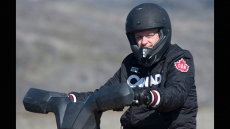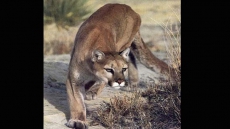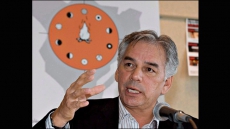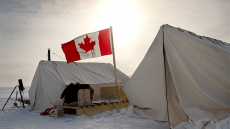VANCOUVER - Fisheries and Oceans Canada is looking for someone to map the ocean floor near the British Columbia coast, an area it says could be affected by spills with the expected increase in tanker traffic.
The department issued a request for proposals Friday for initial steps toward mapping the inlets, islands, reefs and intertidal areas of the Haida Gwaii archipelago, and the Queen Charlotte and Johnstone straits.
DFO also wants an update to the existing map of the Strait of Georgia, between the mainland and Vancouver Island.
"The transportation of oil and hazardous and noxious substances is expected to increase along the West Coast of Canada," said the tender notice posted online.
"In anticipation of these changes, the Government of Canada has implemented a multi-agency world class tanker system research and development program that is dedicated to improving and strengthening the current system and emergency response.
"As part of this program, Fisheries and Oceans Canada science has been tasked with mapping (ocean bottom) ecosystems in areas that may be impacted by increased tanker traffic and potential spills."
No one from the department returned calls or emails Friday seeking comment.
The tender says the transportation of oil and hazardous and noxious substances is expected to increase and the map database will be used "to inform response in the event of an environmental emergency."
The project must be completed by the end of March next year because "time is of the essence."
The federal government has approved Enbridge's (TSX:ENB) $7.9-billion Northern Gateway pipeline through northern B.C., while Kinder Morgan's proposal for the $5.4-billion Trans Mountain from Alberta to Metro Vancouver is now before the National Energy Board.
Ottawa has vowed to improve tanker safety in the face of the controversial projects.
The contract is for mapping the ocean floor ecosystems of all waters off the B.C. coast shallower than 50 metres.
British Columbia has some 27,000 kilometres of coastline, and few of the waters near shore have been mapped, said John Harper, a marine geologist with Victoria-based Coastal and Ocean Resources.
Information has been gathered by various agencies such as the Canadian Hydrographic Service and the Institute for Ocean Sciences, but that information hasn't necessarily been put together into one database, he said.
And technology has evolved, leaving some information outdated.
"There are gaps. In some places, there are very large gaps," said Harper, who has been involved in similar recent mapping projects in Washington state, Oregon and Alaska.
The request for proposals by Fisheries and Oceans noted that the area is "highly variable and difficult to access."
In fact, the tender said large extents of B.C.'s marine waters require "predictive models" — estimates — to determine where species are located "since not all habitats can be surveyed."
Northern Gateway would transport about 525,000 barrels a day of diluted bitumen from just outside Edmonton to a marine terminal in Kitimat, on the northern B.C. coast.
The Trans Mountain expansion would almost triple the capacity of the current line through the B.C. Interior to Port Metro Vancouver, from 300,000 barrels a day to almost 900,000.
Opponents point out that together, they would result in more than 600 additional oil tankers a year plying the B.C. coast.
"Why is this happening now and hasn't happened already?" asked Ben West, of the environmental group Forest Ethics Advocacy.
"It makes the whole process feel more political than practical, in the sense that it's happening for the sake of a public-relations effort."






